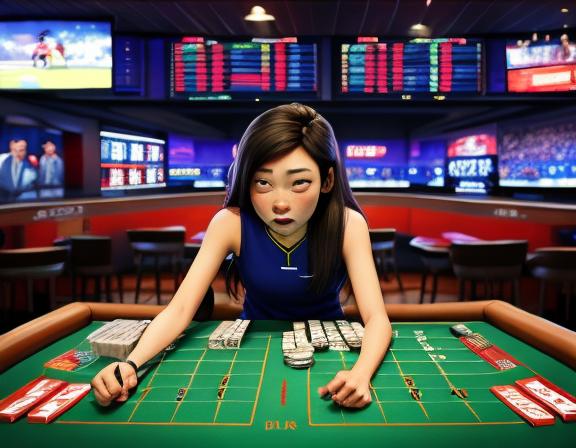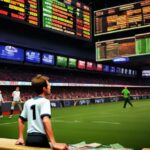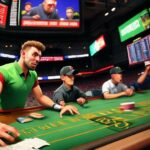Social Influence on Prop Bet Behavior
Social influence plays a significant role in prop bet behavior within social settings, where individuals can be swayed by the actions and decisions of their peers. This phenomenon, known as the bandwagon effect, often leads individuals to make prop bet choices based on what others are selecting, rather than their own independent analysis. The desire to conform to the group’s choices and avoid standing out can override one’s own judgment, leading to impulsive and potentially irrational betting decisions.
Moreover, social influence can also manifest through the pressure to fit in with a particular social group or to gain acceptance and approval from others. In the context of prop bets, individuals may feel compelled to make certain choices to align themselves with the group’s consensus, even if those choices do not align with their personal preferences or analysis. This pressure to conform to social norms and expectations can influence prop bet behavior significantly, highlighting the importance of considering social dynamics in understanding and predicting betting patterns.
Group Dynamic Effects on Prop Bet Choices
Group dynamic effects play a significant role in how individuals make prop bet choices. When in a group setting, people tend to be influenced by the opinions and behaviors of others around them. This social pressure can lead individuals to make bets that they otherwise wouldn’t have considered, simply to align with the group’s consensus or to avoid standing out.
Moreover, group dynamics can create a sense of camaraderie and competition among participants, further influencing prop bet choices. The desire to fit in or to outperform others in the group can drive individuals to take more risks or make unconventional bets. This aspect of social influence highlights the importance of understanding how the group environment can impact an individual’s decision-making process when participating in prop bets.
Habitual Patterns in Prop Bet Selection
Engaging in prop bets can lead to the formation of habitual patterns in how individuals make their selections. Over time, people may develop certain preferences or tendencies based on past outcomes or personal inclinations. This can create a sense of familiarity and comfort, leading individuals to stick to certain types of bets or specific strategies even when faced with different options.
These habitual patterns in prop bet selection can sometimes be driven by factors like superstitions or lucky numbers, rather than rational decision-making processes. People may find themselves repeatedly choosing certain outcomes or bets due to a perceived sense of luck or intuition, even if there is no logical basis for these choices. Breaking away from these habits can be challenging but essential in ensuring a more balanced and informed approach to prop betting.
Breaking Bad Betting Habits
Breaking bad betting habits can be a challenging task for individuals who have ingrained patterns of behavior when it comes to prop bets. These detrimental habits often stem from a combination of factors, including emotional responses, peer pressure, and impulsivity. It is crucial for individuals to recognize and acknowledge these behaviors in order to break free from negative cycles of betting.
One effective strategy for breaking bad betting habits is to practice self-control and discipline. By setting clear boundaries and limits for oneself, individuals can avoid impulsive and risky bets that may be driven by emotion rather than rational thinking. Additionally, seeking support from friends, family, or even professional counselors can provide the necessary guidance and encouragement to overcome destructive betting patterns.
Understanding the Motivations Behind Prop Bet Participation
Participating in prop bets can be a thrilling experience for many individuals, as it combines the excitement of sports with the added element of uncertainty. The motivations behind why people engage in prop bets are varied and can be influenced by both intrinsic and extrinsic factors. Intrinsic motivations may include a desire for entertainment, a competitive spirit, or the thrill of taking risks. On the other hand, extrinsic motivations could involve social pressure, peer influence, or the potential for monetary gain.
Understanding these diverse motivations can provide valuable insights into why individuals are drawn to prop bets and how their behavior is influenced by different factors. By recognizing the underlying motivations behind prop bet participation, it becomes easier to tailor experiences to meet the needs and preferences of bettors. Additionally, gaining a deeper understanding of these motivations can help individuals make more informed decisions about when and how to engage in prop betting activities.
Intrinsic and Extrinsic Factors Driving Bet Placements
In the world of prop bets, there are a multitude of factors that drive individuals to place their wagers. Intrinsic motivations, stemming from one’s personal desires and values, play a significant role in bet placements. For some, the thrill of predicting a specific outcome or showcasing their sports knowledge acts as a strong intrinsic motivator. Others may be driven by the sense of accomplishment that comes from winning or by the competitive nature of the betting environment.
On the other hand, extrinsic factors also exert a notable influence on prop bet participation. External rewards such as financial gains, social status, or peer recognition can greatly impact one’s decision to partake in prop betting. The allure of potential profits or the desire to impress others with accurate predictions can drive individuals to place bets they may not have otherwise considered. It is essential to recognize the interplay between intrinsic and extrinsic factors in understanding the complex landscape of prop bet placements.








